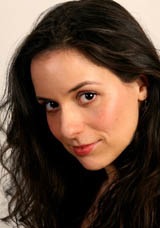(ANNANDALE-on-HUDSON, N.Y.) – The Hannah Arendt Center for Politics and Humanities at Bard College is presenting a special concert series titled Music in the Holocaust, Jewish Identity and Cosmopolitanism, featuring music composed and performed by Jewish prisoners in Nazi territories during World War II, on Saturday, April 20, and Saturday, April 27, 2013. Both concerts will be held at 7 p.m. at Olin Hall on the Bard Campus. Admission is free and open to the public and no reservations are necessary.
“Nationalism, Continuity, and Creativity: Music of Warsaw, Lodz and other Eastern Ghettoes” will be performed on Saturday, April 20, and will include Robert Cuckson’s 2003 song cycle, “Der Gayst funem Shturem” (The Spirit of the Storm), with text taken from the poems of ghetto survivor Binem Heller. It will be performed in Yiddish by mezzo-soprano Malena Dayen, with piano accompaniment by David Rosenmeyer, the couple for whom Cuckson composed this cycle. The Warsaw Ghetto song cycle is informed by the rift within Jewry itself between Western and Eastern European models of Jewish accommodation and Jewish being in the modern world, a recurrent theme in Arendt’s Jewish writings. The musical performances are all, each in their own way, an expression of this internal struggle within the larger Jewish community during the Holocaust. There will be a panel discussion with Cuckson and others immediately following the performance.
The final concert on Saturday, April 27, “Kurt Weill and the Modernist Migration: Music of Weill and Other Emigres” will focus on the work of Weill and his contribution to the American Songbook, as well as the reverberations of the Weimar cultural legacy in the United States. Weill was a resident of the Hudson Valley during his last decade and was an important figure in the German-Jewish exile community that took root in New York and Hollywood. The evening will feature songs from several of Weill’s American musicals including “Knickerbocker Holiday” (set in the colonial Dutch Hudson Valley) and the 1941 musical “Lady in the Dark,” as well as several of Weill’s works from his collaboration with Brecht. The lecture will touch upon the legacy of the Weimar Republic, the setting in which Weill’s collaboration with Bertolt Brecht took place, and its role in creating a culture that diverged from both the universalizing humanist and romantic nationalist strains of German cultural identity.
These concerts are part of the effort by the Hannah Arendt Center for Politics and Humanities at Bard College to meaningfully broaden dialogue around German-Jewish thinker Hannah Arendt’s deep and lifelong engagement with questions of Jewish being in the modern world. These evenings will take music from the world from which Hannah Arendt came to the world in which, along with her fellow German-Jewish exiles, she found refuge.
This series is co-sponsored by the Bard Jewish Student Organization, Jewish Studies Program, Bard College Music Program, Bard College Historical Studies Program, and the Hannah Arendt Center and is made possible through the generosity of a grant from the Bertha Effron Fund of the Community Foundation of the Hudson Valley.
For more information about the Center go to The Hannah Arendt Center for Politics and Humanities at Bard College, or call 845-758-7878, or send an e-mail to arendt@bard.edu.

